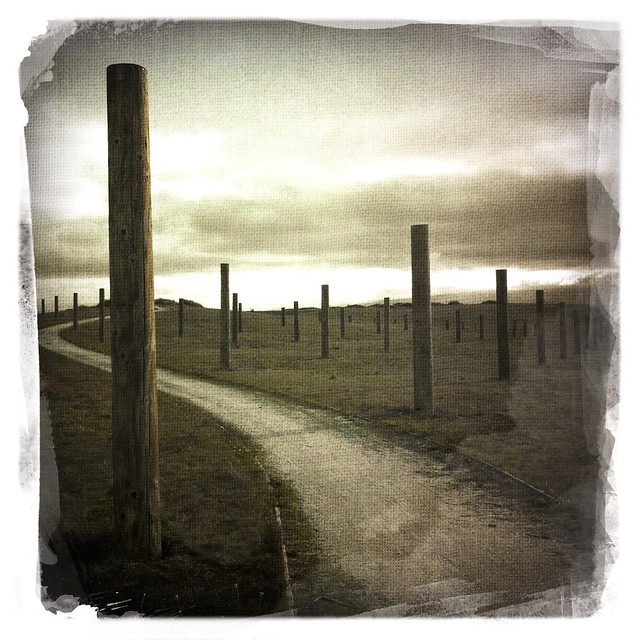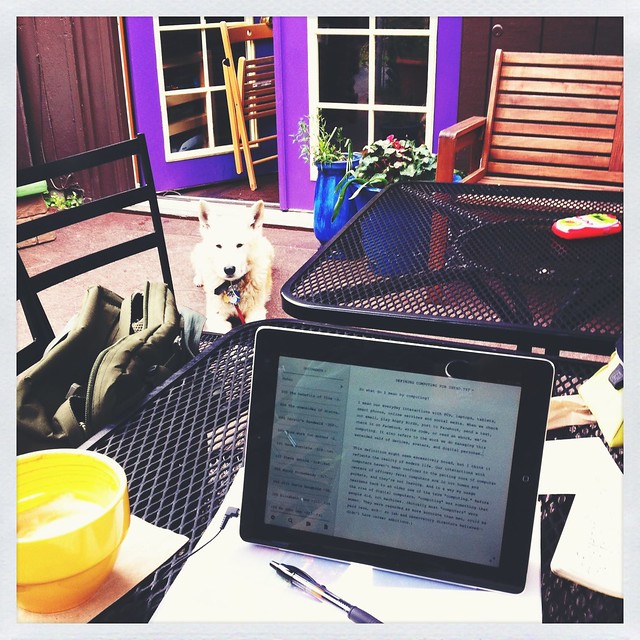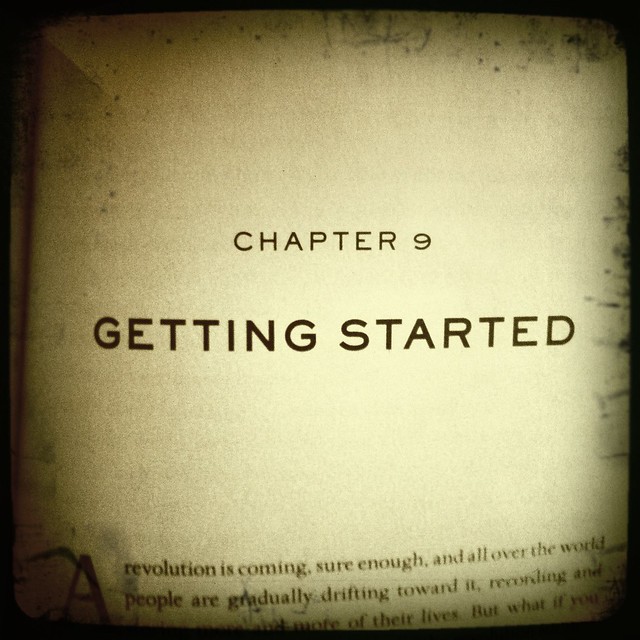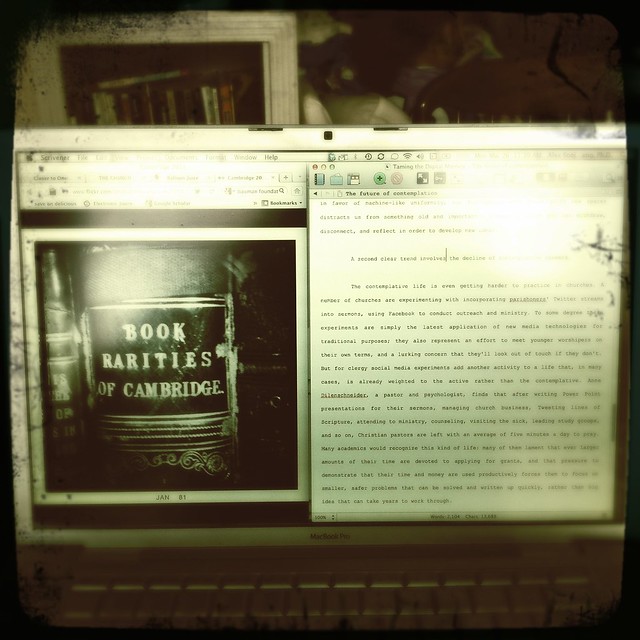A while ago I wrote a piece about writing for the trades. As someone who’d written for academic audiences, and for corporate and government clients, it was interesting to take on the challenge of writing a book for a popular audience.
I just finished the first draft of the manuscript– as in, sent it off to my editor and agent a couple hours ago– and while it’s all still fresh, thought I’d spend a little more time on what I’ve learned about writing.

via flickr
The single most important thing is, be organized. The reason I was able to write this draft in a year was that I started the process with a strong, well-organized outline– an outline that I took very seriously, because it was the basis of my book contract. So that short-circuited all that screwing around you do trying to find the perfect structure. I had one that the publisher liked, and so I was damn well going to stick with it.
Then on a daily basis, this means: organizing your goals for the week, listing out the sections you’re going to write, and generally spending as much time as you need to be clear about what you’re going to write– so long as you actually write it. There’s always the danger that this kind of prep becomes a substitute for actual word production. Watch out for that.
It also meant always setting up the coffee the night before, and organizing your workspace before bed so you could just sit down and be ready to go.
These are little things, but they make tangible your commitment to the project.

via flickr
Another is to seek solitude. Turn on Freedom, or LeechBlock, or whatever. Put on the headphones. Before they exist on paper, good words live in a very quiet space, that you can only really reach in solitude. Of course you need to share your work in writing groups, with editors, and (you hope) a very big public. But in order to have ideas good enough to share, you need to seal yourself from everything but the words.
It’s like how monastics describe the role of silence in contemplation of the divine. A common theme in monastic practice is that you cannot hear the voice of God, or achieve Enlightenment or satori, or see the ultimate truth, until your soul is quiet and ready. God does not make himself heard over the din. You have to listen for Him.
Another thing that I found really helpful was to stop for the day in mid-thought, or with one more sentence in the paragraph. It had to be something I knew I wouldn’t forget, but having that as the first thing I did the next morning really helped me get started. The beginning is always the hardest part, and so if you can make the start of each writing day easier by actually knowing exactly what you’re going to say, you’ll make your life easier.

via flickr
I now think that after years of writing, there’s a more direct connection between whatever parts of my mind generate good ideas, and the part of my mind that controls my hands. There’s a relationship between the physical act of writing and the “mental” act of creating that is not merely linear: I don’t have ideas and then write them down. I have ideas because I am writing.
So it’s absolutely essential that I spend time at the keyboard.

via flickr
And I needed something to make it easier, because I was getting up in the pre-dawn hours and writing for an hour or two before anyone else woke up. (Even the dog stayed asleep and didn’t follow me out to the living room.) I am absolutely NOT a morning person, but it made a big difference to have that time to myself, and to write in a state where I was actually to tired to distract myself. My semi-conscious brain was better able to stay on target, and whatever good ideas were bubbling up from my subconscious had an easier time reaching the calmer surface of my mind.

via flickr
This was a complete change from the way I normally write and live. I’m naturally a late sleeper, and so it took real will for me to get up early. But it really did work. I was actually taken by surprise. I figured that having some words under my belt before I took the kids to school would be a psychological boost. What I didn’t expect was that the very early morning would actually be a good time to write. But it turns out it was. Everyone should experiment with writing on a different schedule, or in a different way, to see if there are things that work better for them.
Thus endeth the lesson. For now.
